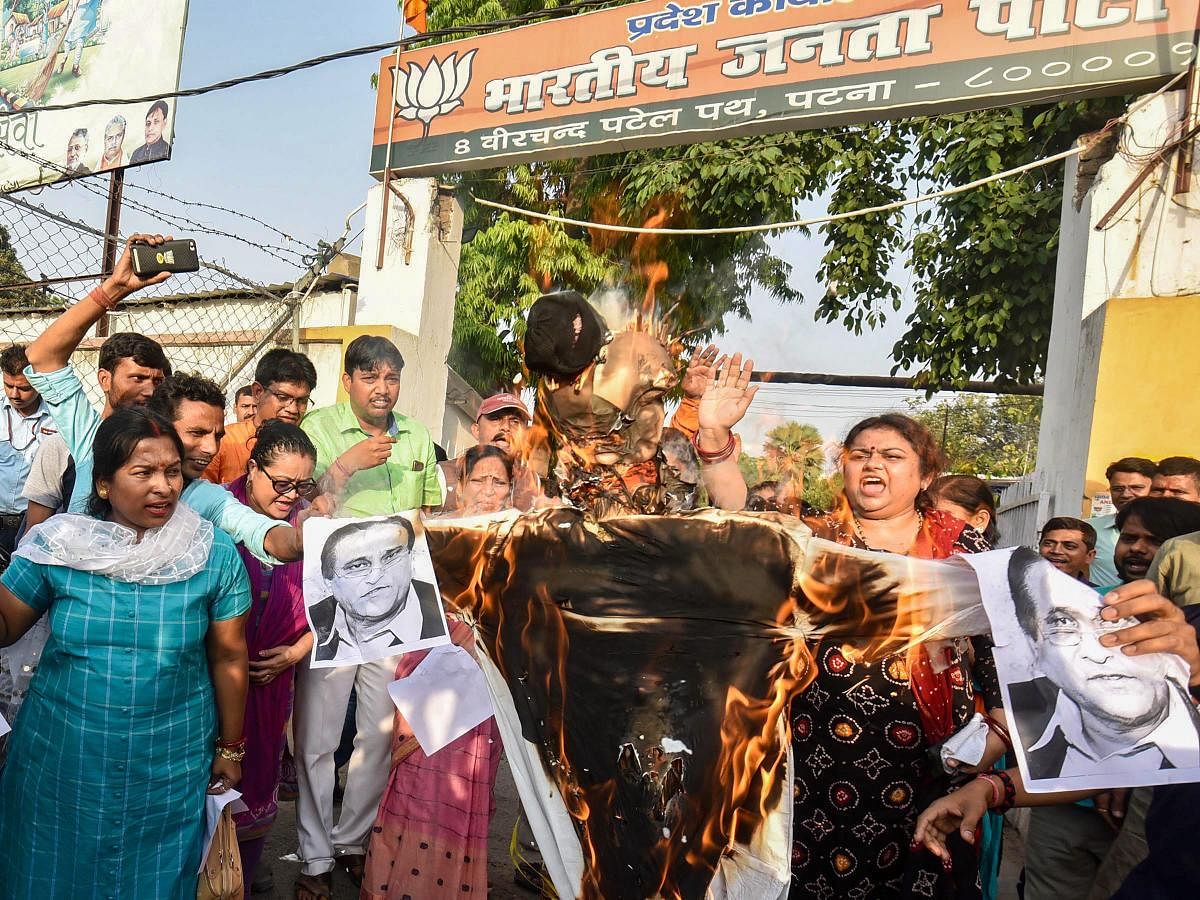
On February 15, Singapore Prime Minister Lee Hsien Loong, commenting on the erosion of democracy in India, cited the example of the rising number of criminals in Parliament. The reaction of the government was quick and sharp, terming the remark “uncalled for”. The government may argue that it is an internal matter, but at a time when the ruling dispensation is making all efforts to be a “Vishwa Guru”, it needs to address the structural problem of the fast-spreading criminalisation of politics. The sharp reactions and counter-reactions are not going to help our polity grow democratically in a mature manner and may even dent our image in the arena of global politics.
To illustrate the point, according to data revealed by the Association of Democratic Reforms, the number of candidates with criminal charges getting elected to Parliament has been on the rise since 2004. The number of Parliamentarians with pending criminal cases has risen from 24% in 2004 to 43% in 2019. In such a scenario, expecting accountable and transparent governance from such political representatives remains a utopian idea. These figures indicate that we as a society are collectively failing to elect honest and sincere candidates who are committed to clean politics and governance.
The effect of criminal charges of serious nature levelled against a candidate is not taken seriously by political parties. On the contrary, most parties defend the candidature on many grounds. One of the most cited reasons is that the probability of the candidate winning the elections is high. Giving tickets to candidates with serious criminal charges has gradually broken the trust of the people in the elections. In addition to this, it (i) betrays the electoral mandate of the voters; (ii) corrodes the fundamental tenets of the party system; (iii) destabilises elected governments; and (iv) reduces the value of politics from a transformative tool for social change to serving individual interests, a political business cycle.
The heart of the matter is, given the role of identities such as jaati (caste), community, ethnicity, gender, religion and ideology in politics, political parties are reluctant to bring in progressive changes. These identities, coupled with money, muscle power and dynastic background and its associated social status, influence people’s perception in the elections. The influence of wealth, assets and criminal charges of the candidates on their election outcome calls for closer scrutiny.
Political parties continue to indulge in the criminalisation of politics especially when the party is losing ground. There is a need for strengthening internal democracy within the party system to prevent and regulate political parties from offering tickets to candidates with a criminal background. Thomas Hobbes, while explaining a person’s behaviour in the state, notes that “the biggest threat to the stability of states is the existence of too much scope for private judgement. The more each person is entitled to think for themselves in matters of wellbeing, the worse it turns out for everyone. They function in the state not as citizens in the fullest sense, but as subjects only”.
To overcome the electoral interests of political parties, it is necessary to strengthen the Election Commission of India (ECI) to an extent that powers must be accorded to regulate the actions of the political parties with specific emphasis on scrutiny of the candidate’s application. This practice is prevalent in Germany, Portugal and Spain and needs to be studied and replicated to suit the Indian socio-political conditions.
A political and policy consensus on the need for bringing the regulation of political parties within the ambit of the Constitution through ECI is imperative to protect and preserve our democracy. Time and again the Supreme Court of India has reiterated the need for electoral reforms along with amending the Representation of People Act, 1951. Unfortunately, the court has stopped at giving directions rather than making it mandatory on the part of the law-making organ and said that it is the job of Parliament.
Conscious citizenship
The foregoing analysis indicates the harsh reality of the unwillingness of Parliament to legislate a law curbing the entry of criminals in politics. The rigidity of the Supreme Court in this matter of not venturing into the domain of Parliament is also a factor for the dissatisfaction among the advocates of democracy. In this scenario, the role of individuals as citizens has immense importance in electing those with a commitment to the Constitution and people’s welfare. Individual assertion is the basis of all the reforms, be those political or social in the spirit of democratic insurrection and active citizenship.
It is pertinent to ask, to what extent are we exercising our voting rights in a transparent manner; in other words, are we ready to vote without inclining towards identity and populist politics? The laws and institutions are only facilitating agents and the change should come within the people to vote for politics of performance. The empowerment of voters is the first step towards bringing in the attitudinal transformation of people. It seems that political parties are least bothered about respecting the voter’s decision in the gamble of power politics. Conscious citizenship is the soul of democracy without which the foundations of democratic polity may not sustain for a longer period.
The link between citizenship and democratic governance is deep and inseparable. Politics is caught in crime, identity, patronage, muscle and money network. The deep-running nexus between crime and politics is dangerous to the health of polity and society. The hegemonic politics of freebies has kept the voter within the ambit of the political business cycle. The solution to the criminalisation of politics lies in building the consciousness of “We the Citizens” from the “We the People”.
(The writer is PhD Fellow, Centre for Political Institutions, Governance and Development of Institute for Social and Economic Change, Bengaluru)